Chapter 10 Outline PDF

| Title | Chapter 10 Outline |
|---|---|
| Course | Bioethics |
| Institution | University of Alabama at Birmingham |
| Pages | 2 |
| File Size | 57.5 KB |
| File Type | |
| Total Downloads | 69 |
| Total Views | 157 |
Summary
Chapter 10 Outline...
Description
Tuesday, August 30, 2016
Chapter 10 Outline Medical Research on Vulnerable Human Subjects - Josef Mengele • German medical schools did not resist, but lead Nazi eugenics and the killing of undesirables - The Nuremberg Code • The judges at Nuremberg lacked a code of ethics for experimentation on captive populations, so they created 10 principles for ethical experimentation, known as the Nuremberg Code
• Its most important principle was that people should freely consent to participation in any experiment - Questionable American Research • Franklin Roosevelt established the Committee on Medical Research • The Department of Energy or its predecessors conducted at least 435 experiments in 21 states • The U.S. Public Health Service began to require informed consent of subjects, an important fact in judging the Tuskegee Study
- The Tuskegee Study • Nature and History of Syphilis - American reformers mounted the Syphilophobia Campaign - The Harm Reduction Movement (HRM) focuses on reducing the associated harms of these behaviors, not on moral censure or eliminating the behaviors
- Boeck’s and Bruusgaard’s studies had caused physicians to question the received views about the natural course and treatment of syphilis
• A Study in Nature Begins - Physiologist Calude Bernad in 1865 distinguished studies in nature from normal experiments - Vonderlehr had no sense that it might be wrong to use such vulnerable subjects in a life-long experiment • The Middle Phase: Poor Design - The study proved nothing • Spinal Taps and Deception - They told the black men that they had “bad blood” and that the spinal taps were treatment for their bad blood - Although penicillin was developed around 1941-1943 and was widely available by 1948, the subjects in the Tuskegee Study never received it
• Revelation of the Study to the World - In 1966, USPHS venereal disease investigator Peter Buxtun learned about the study - After Heller’s story appeared, the Secretary of Health, Education, and Welfare terminated her study - In 1972, as a direct relegation of the study, the federal government required all institutions to conduct human medical experimentation and receive federal funds to have Institutional Review Boards (IRBs)
• Informed Consent and Deception
1
Tuesday, August 30, 2016 - Telling patients the truth was not legally required before 1966 • Media Coverage - Researchers did intend to withhold treatment - No reporters then or now have the medical background to understand such complicated stories and without that, cannot risk charging physicians with possible crimes
• Harm to Subjects - Kampmeier argued that withholding penicillin in 1946 did not harm subjects with latent syphilis - He argued next that proof of penicillin’s effectiveness did not come until 1948 and then only for primary syphilis
• Kant and Motives of Researchers - When physicians at CDC and USPHS debated the Tuskegee study in 1969, many assumed that if no harm could be proved, nothing unethical had been done
- We cannot use differing historical standards at differing times to excuse lack of informed consent, but not pay attention to what else researchers believed that that time
- The crucial fact is that when penicillin became available, most physicians believed it would help latent syphilitics
- For Kantian ethics, researchers deliberately willed harm on these subjects
2...
Similar Free PDFs

Chapter 10 Outline
- 2 Pages

Chapter 10 Outline strayer
- 6 Pages

Chapter 10 Section 4 Outline
- 2 Pages

Ch. 10 Lecture Outline
- 5 Pages

Chapter 10 quiz #10
- 3 Pages

Notes 10 - Chapter 10
- 5 Pages

2021 10 ELEC4612 Course Outline
- 10 Pages
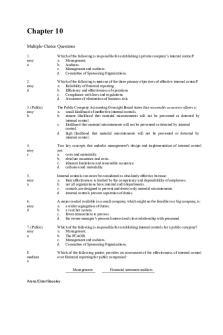
Chapter-10
- 19 Pages
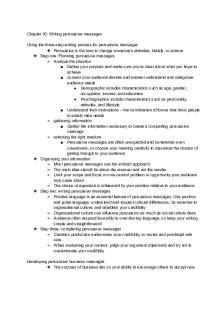
Chapter 10
- 5 Pages
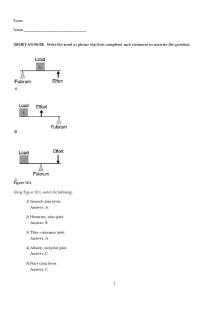
Chapter 10
- 14 Pages

Chapter 10
- 111 Pages
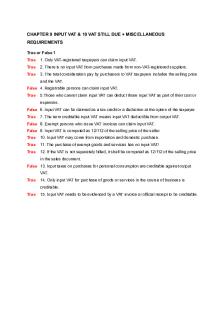
Chapter 10
- 16 Pages
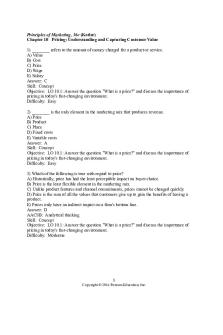
Chapter 10
- 47 Pages
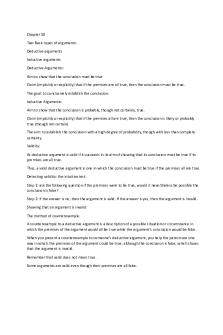
Chapter 10
- 4 Pages
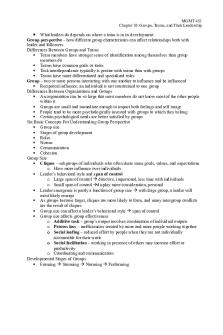
Chapter 10
- 5 Pages
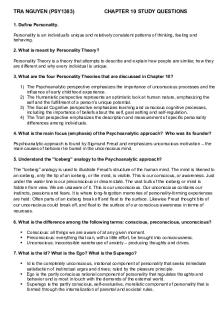
Chapter 10
- 6 Pages
Popular Institutions
- Tinajero National High School - Annex
- Politeknik Caltex Riau
- Yokohama City University
- SGT University
- University of Al-Qadisiyah
- Divine Word College of Vigan
- Techniek College Rotterdam
- Universidade de Santiago
- Universiti Teknologi MARA Cawangan Johor Kampus Pasir Gudang
- Poltekkes Kemenkes Yogyakarta
- Baguio City National High School
- Colegio san marcos
- preparatoria uno
- Centro de Bachillerato Tecnológico Industrial y de Servicios No. 107
- Dalian Maritime University
- Quang Trung Secondary School
- Colegio Tecnológico en Informática
- Corporación Regional de Educación Superior
- Grupo CEDVA
- Dar Al Uloom University
- Centro de Estudios Preuniversitarios de la Universidad Nacional de Ingeniería
- 上智大学
- Aakash International School, Nuna Majara
- San Felipe Neri Catholic School
- Kang Chiao International School - New Taipei City
- Misamis Occidental National High School
- Institución Educativa Escuela Normal Juan Ladrilleros
- Kolehiyo ng Pantukan
- Batanes State College
- Instituto Continental
- Sekolah Menengah Kejuruan Kesehatan Kaltara (Tarakan)
- Colegio de La Inmaculada Concepcion - Cebu